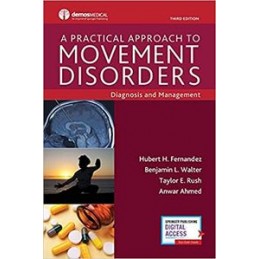- Obniżka


 Dostawa
Dostawa
Wybierz Paczkomat Inpost, Orlen Paczkę, DHL, DPD, Pocztę, email (dla ebooków). Kliknij po więcej
 Płatność
Płatność
Zapłać szybkim przelewem, kartą płatniczą lub za pobraniem. Kliknij po więcej szczegółów
 Zwroty
Zwroty
Jeżeli jesteś konsumentem możesz zwrócić towar w ciągu 14 dni*. Kliknij po więcej szczegółów
The book is organized by medical, behavioral, surgical, and non-pharmacological treatment approaches to movement disorders. Opening chapters walk the practitioner through clinical presentation, diagnosis, and work-up of common and uncommon disorders, sleep-related movement disorders, eye and vestibular function, including pediatric issues. Behavioral and psychiatric complications for Parkinson disease, Huntington disease, and Tourette syndrome follow, with a fully reconfigured chapter on functional movement disorders, incorporating changes in classification and treatment approach. Expanded chapters on surgical devices and indications address deep brain stimulation surgery; lesioning, shunts, and pumps; post-operative care; and neuropsychological, social, and ethical issues. The final section on non-pharmacological approaches covers physical and occupational therapy, speech and swallowing therapy, nutrition, and palliative care.
Key Features::
Opis
